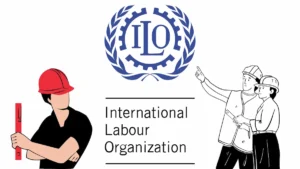Participatory Gender Audits (PGA)- ILO
At GenderGaze, we don’t just promote gender equality — we institutionalize it.
Certified by the International Labour Organization (ILO), we offer Participatory Gender Audits (PGA) — a globally recognized methodology that goes beyond checklists to create sustainable, actionable, and transformative change.

Our audits are rooted in a participatory, experiential process that strengthens the gender competency of individuals, teams, and organizations.
What Is a Participatory Gender Audit?
A Participatory Gender Audit is a diagnostic and capacity-building tool designed to:
- Assess your internal systems, culture, and structures from a gender lens
- Identify gaps, barriers, and opportunities for improvement
- Establish a clear baseline and action-oriented roadmap for gender mainstreaming
- Foster a collaborative culture of reflection, learning, and ownership of gender equality goals
Think of it as a quality audit — not financial — but social, strategic, and cultural.
Our Process Is Your Progress
As ILO-certified facilitator and tried-and-tested methodologies, we guide your organization through a structured, high-impact process:
- Document Reviews for gender-sensitive content and policy alignment
- Workshops and Interviews that invite open, participatory dialogue
- Culture Mapping
- Recommendations : for customized Action Plans.
- Post-Audit Support to translate findings into lasting change
Why GenderGaze?
- ILO Certification: A mark of global credibility and best-practice standards
- Deep Expertise: Skilled facilitators trained through ILO’s rigorous TOF (Training of Facilitators) programs
- Global Perspective, Local Relevance: We use ILO Methodology proved across Asia, Africa, Europe, and Latin America
- Sustainable Results: We build internal capacity, not external dependency
- Beyond Gender: Address workplace culture issues like overwork, siloed communication, and inclusion gaps — all revealed through a gender lens Our Impact
Organizations that have undergone our gender audits report:
- Increased clarity and commitment to gender equality
- More inclusive policies and workplace environments
- Improved staff morale and gender balance in decision-making
- Stronger alignment with national and international gender frameworks

